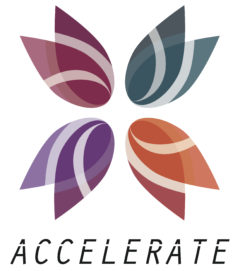COVID-19 has a substantial impact on the operations of analytical facilities that serve external users.At the end of April 2020, only a third of the surveyed research infrastructures (RIs) reported that they maintained such user access activities; however, several had set up specific COVID-19 services and responded to travel limitations with a strong shift towards remote services. Half a year later, the pandemic is still not over, and the significant mutations of the virus observed recently indicate that COVID-19 is likely to remain endemic for the foreseeable future. RIs, as a consequence, will have to learn how to live with it to some degree, possibly for years to come.
The present questionnaire aims to report on the changes and challenges that analytical facilities faced at the end of October 2020, just before the rise of the second wave, which again severely interrupted their activities. The following observations can be made:
- Most of the RIs have resumed operations, including general support to external users. More than two-thirds report full operations, with almost no change relative to the pre-COVID-19 period with respect to the share of instruments running. Despite the instruments’ availability, a large majority of RIs serve fewer external users compared to the pre-pandemic era. This situation will likely translate into slower progress or lower output in ground-breaking research and solutions to societal challenges.
- COVID-19 research is still an important focus of many facilities, with dedicated services offered by more than half of the RIs that have resumed operations.
- The RIs have largely adapted their operations as a consequence of the pandemic. This is reflected in diminished staff presence, largely introduced due to safety requirements. A significant share of remote access is observed, with samples mailed in, due to the restrictions on users’ travel. In the pre-COVID-19 period, remote access was rather limited, typically comprising up to 20% of all access. This has changed remarkably during the pandemic, with almost a third of RIs estimating that more than 60% of their access is currently remote.
- Several measures have been introduced by the facilities to enable remote experiments, from virtual communication tools, remote control of the acquisition systems and remote analysis to resources for data sharing. However, no additional funds have been granted to the facilities to support these activities, which were resourced by reallocating internal funds, and, in one case, EC funding.
- Several difficulties relating to remote access, as compared to on-site access have been reported. They relate mostly to the increased workload of instrument scientists and reduced training opportunities. The complexity of some experiments also prevents them from being conducted remotely at present.
- Institutions generally (70%) expect that the increased share of remote access is here to stay, even when COVID-19 no longer significantly constrains operations. There are many reasons for this, from higher experimental throughput, to decreased environmental impact and additional/better services to the users.
- Regarding safety measures at the facilities, widespread – although remarkably diverse – preventative measures have been adopted since the April survey. Most RIs have worked out how to put in place best-practice protocols and have implemented them. Additionally to mask-wearing, which is now broadly adopted, the measures include, for example, an increased percentage of remote access, the introduction of thermal testing and some form of testing for the virus, e.g. PCR tests.
- The most common planned development to enhance safety in the future is the introduction of testing for staff and users. However, one-third of all respondents have no plans to enhance safety measures further, and only a third indicated plans to introduce measures that are not yet in force, suggesting a high degree of satisfaction with current measures.
- The survey underlined the marked change in the extent to which facility staff now travel for work-related business (for example, to perform experiments or attend events, particularly outside their home country) as compared to before the COVID-19 pandemic.
► Download the report here in Zenodo platform (10.5281/zenodo.4422963).
The questionnaire and report have been set up and developed by the ERF and CERIC in the frame of its Horizon2020 project ACCELERATE, funded by the European Union Framework Programme for Research and Innovation Horizon 2020, grant agreement 731112.

